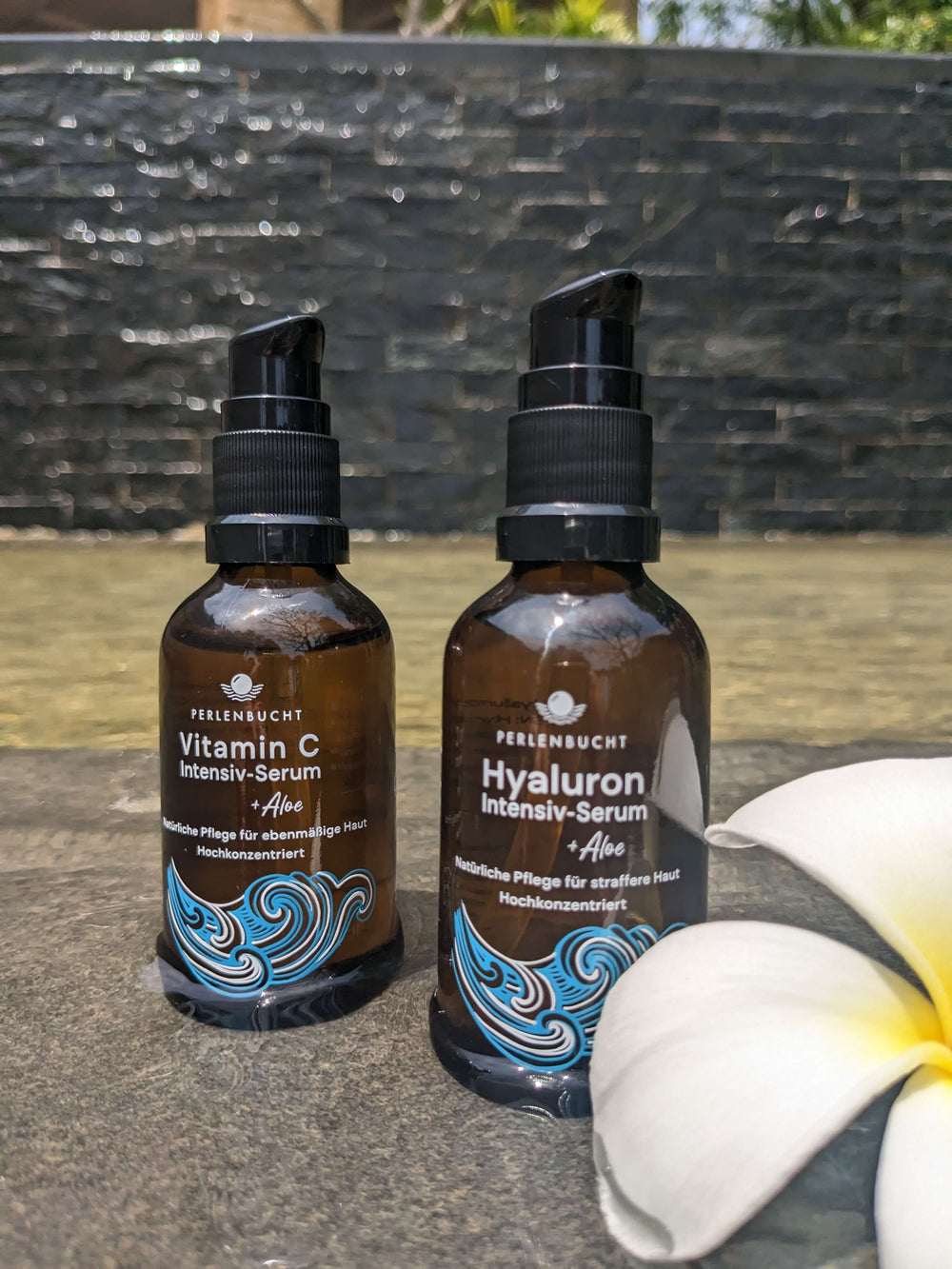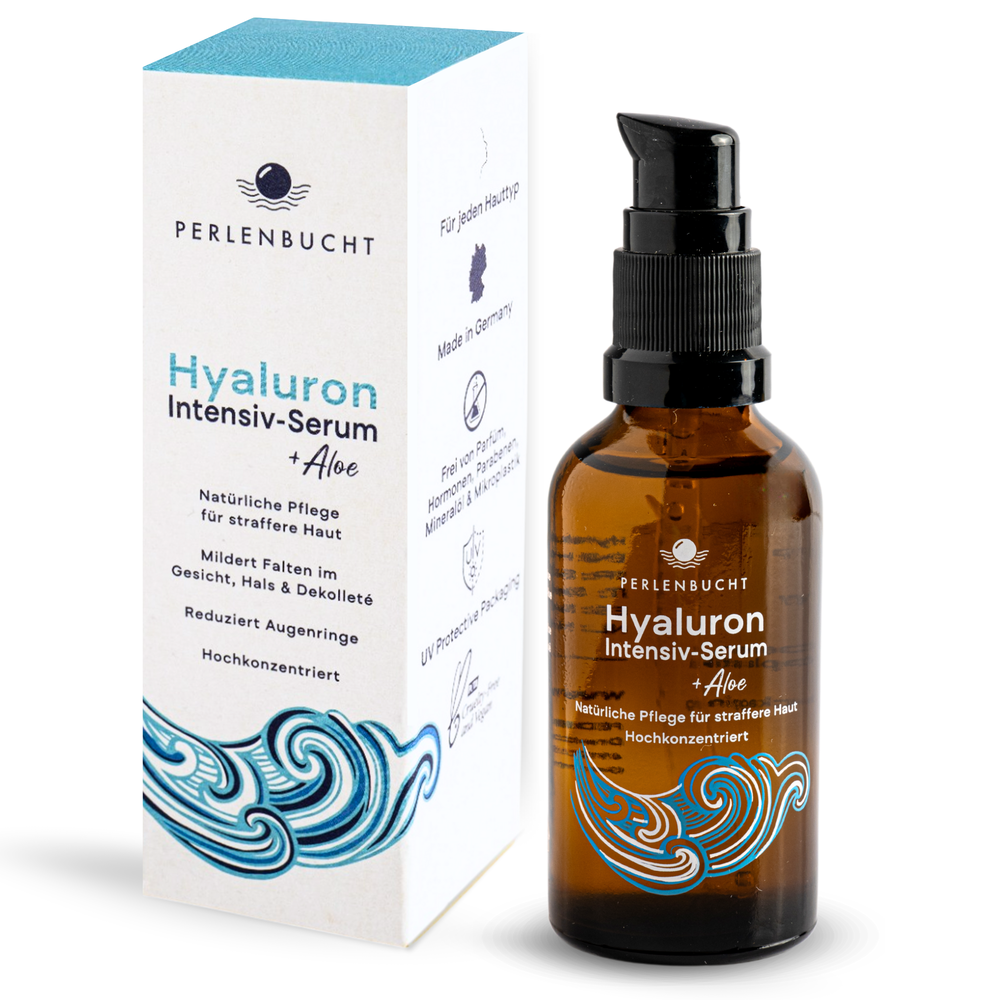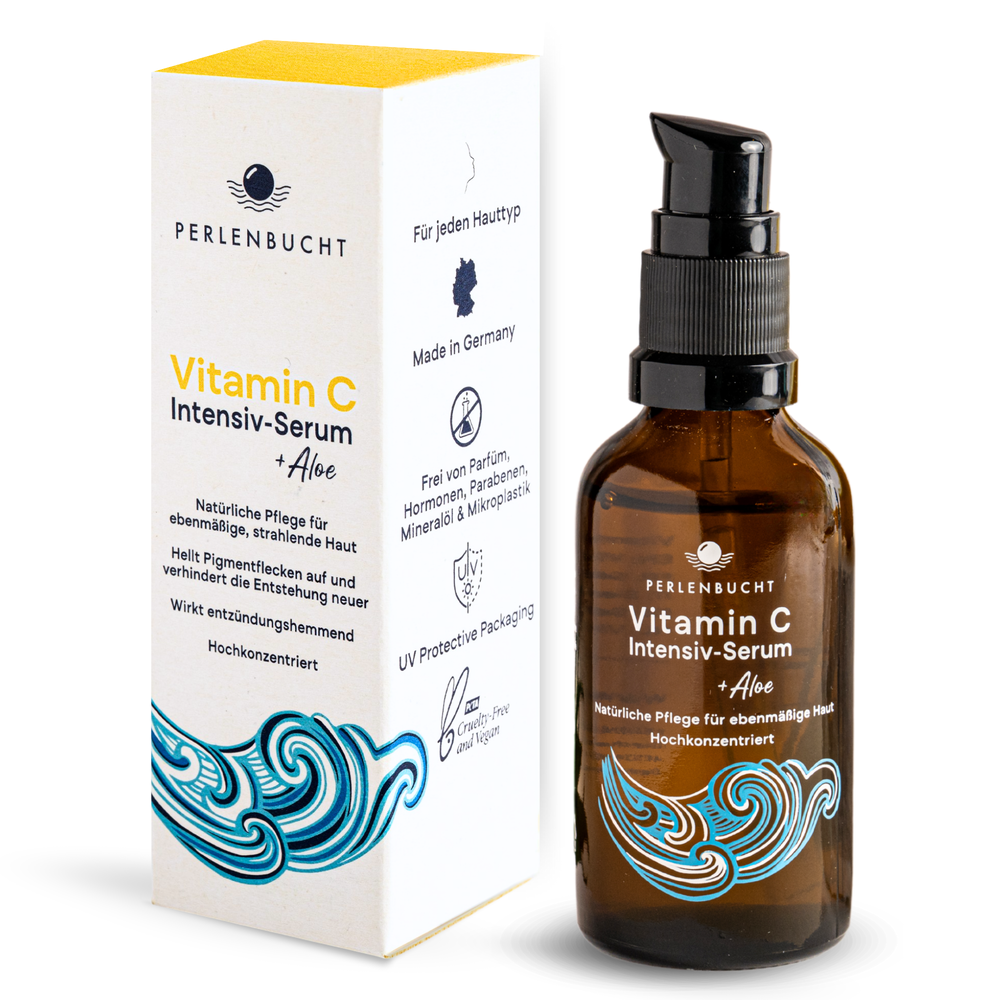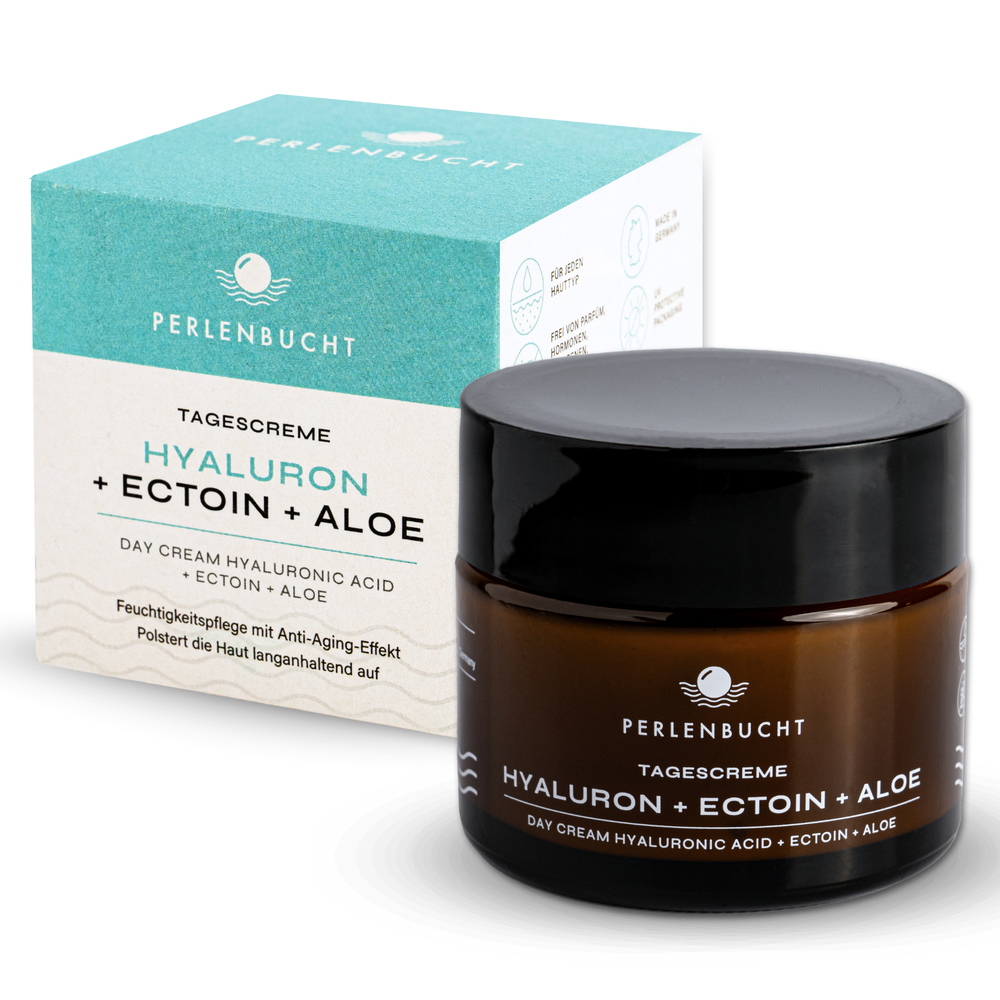Hyaluronic acid and vitamin C are key components of skin care. They are considered the stars of moisturizing and antioxidant protection and can be found in many serums and creams. But there are also many myths surrounding these active ingredients that often lead to misunderstandings. Here we clear up the most common misunderstandings and show how hyaluronic acid and vitamin C actually work.
Myth 1: Hyaluronic acid fills wrinkles immediately
A common myth is that hyaluronic acid instantly "fills" wrinkles and creates smooth skin. In fact, hyaluronic acid can effectively bind moisture - up to 1000 times its own weight - and thus creates a plumper appearance. However, it mainly works on the surface of the skin and is not a substitute for "fillers" that reduce deep wrinkles.
The truth:
Hyaluronic acid provides the skin with intensive moisture and improves the appearance of dry wrinkles by making the skin surface appear smoother. Although no profound wrinkle reduction is to be expected, hyaluronic acid can improve the overall appearance of the skin and ensure a healthy moisture balance through regular use.

Myth 2: Hyaluronic acid and vitamin C are incompatible
A common misconception is that vitamin C and hyaluronic acid cannot be used together because they "neutralize" each other. The myth is based on the assumption that vitamin C works best in an acidic pH range and hyaluronic acid in a neutral range. However, there is no scientific evidence that these two ingredients have a negative interaction.
The truth:
Vitamin C and hyaluronic acid combine excellently and even complement each other. Vitamin C protects the skin from free radicals and ensures a radiant complexion, while hyaluronic acid moisturizes and keeps the skin supple. Together they provide an ideal basis for radiant and well-cared-for skin.
Myth 3: The higher the concentration, the better the effect
Many believe that only high concentrations of vitamin C - around 10 to 20% - have antioxidant and complexion brightening effects. In fact, effectiveness depends not only on the concentration, but also on the regularity of use and skin tolerance. A moderate concentration such as 4% can also produce effective results, especially for sensitive skin prone to irritation.
The truth:
A 4% concentration of vitamin C already provides gentle antioxidant protection and, with regular use, can help improve skin texture and promote a more radiant complexion. For many skin types, especially sensitive skin, 4% is an ideal concentration that strengthens the skin barrier and reduces imperfections without increasing the risk of irritation.
Myth 4: Hyaluronic acid makes the skin oily
Some people worry that hyaluronic acid will make the skin appear oily because it attracts moisture. However, hyaluronic acid is not an oil; it is a moisturizer (humectant) that binds water without leaving a greasy feeling.
The truth:
Hyaluronic acid absorbs quickly and leaves the skin hydrated without appearing greasy. It is suitable for all skin types, including oily skin, as it hydrates the skin without clogging pores or making the skin appear shiny.
Myth 5: Vitamin C always causes skin irritation
It is often thought that vitamin C can easily irritate sensitive skin, especially in high concentrations. However, mild formulations and lower concentrations make it tolerable for most skin types, even sensitive skin.
The truth:
With a concentration of around 4%, vitamin C is well tolerated and offers antioxidant protection and complexion improvement without causing frequent irritations such as redness or dryness. For particularly sensitive skin, it is recommended to increase the application gradually - for example, only every other day at first - to test tolerance.
Myth 6: Hyaluronic acid is only suitable for dry skin
Some people believe that hyaluronic acid only helps dry skin. In fact, all skin types benefit from a balanced supply of moisture, including oily skin. Skin that is dehydrated can lead to an overproduction of sebum, which worsens the skin's appearance.
The truth:
Hyaluronic acid is versatile and helps every skin type maintain moisture balance. It supports the natural skin barrier and provides the skin with intensive moisture, which is also beneficial for oily skin. Oily skin stays hydrated without looking greasy.
Myth 7: Vitamin C and hyaluronic acid deliver immediate results
A common myth is that hyaluronic acid and vitamin C provide immediate results. While hyaluronic acid has a quick hydrating effect and makes the skin appear smoother in the short term, vitamin C usually takes a little longer to take effect.
The truth:
Skin care is a long-term investment. While hyaluronic acid provides a fresher, plumper complexion, vitamin C develops its antioxidant and brightening effects when used regularly over several weeks. Consistent use is crucial for the best results.
Myth 8: All skin types react the same to hyaluronic acid and vitamin C
Some believe that all skin types react the same to hyaluronic acid and vitamin C. However, the effectiveness and tolerability of skin care products depends greatly on the individual skin type and can vary.
The truth:
Every skin type is unique and reacts differently to skin care ingredients. Vitamin C in particular comes in different forms and concentrations that are suitable for different skin types. Hyaluronic acid is available in both high molecular and low molecular forms, which means it can penetrate the skin to different depths. It is worth paying attention to your skin and choosing the formulations that deliver the best results for your skin type.
Conclusion
Hyaluronic acid and vitamin C are powerful and versatile ingredients that play a central role in many skin care routines. With the right expectations and consistent use, visible results can be achieved in the long term. Moisture, protection and a radiant complexion - these are the benefits that can be expected from regular use of hyaluronic acid and vitamin C.









